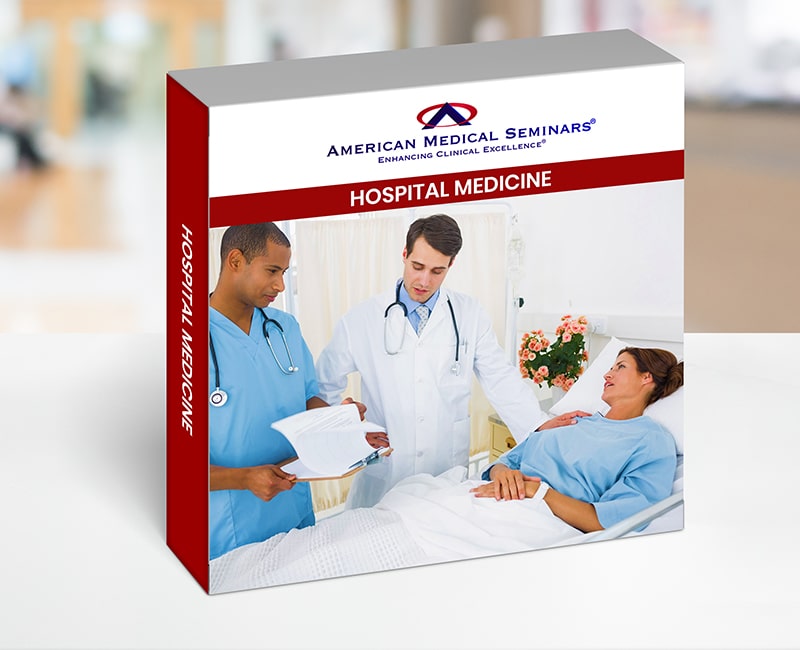Product Description
Title: HMcc-Hospital Medicine-Critical Care- Approach to the Management of Stroke; Update on the Management of Acute Coronary Syndromes; Critical Care Cases – A Primary Care Review
Faculty: David A. Horowitz, M.D.; Kendal Williams, M.D., M.P.H. and Ganesan Murali, M.D.
Original Release Date: July 1, 2021 Expiration Date: July 1, 2024
TOPIC 1: Approach to the Management of Stroke.
Upon completion of this session, the participant should be able utilize the latest evidence based medicine and guidelines to: EBM, GL, COMP
- Develop a strategy to assess the common presentations of stroke/TIA.
- Utilize current initial treatment strategies appropriately.
- Develop a strategy to stratify the risk of stroke.
- Develop a secondary prevention plan.
TOPIC 2: Update on the Management of Acute Coronary Syndromes.
Upon completion of this session, the participant should be able to: GL, COMP
- Distinguish the forms of ACS and their relative prognoses.
- Based on the most recent AHA/ACC guidelines, apply the appropriate initial management of patients experiencing acute coronary syndromes.
- Based on the most recent AHA/ACC guidelines, categorize the therapeutic options for patients with unstable angina and post-MI.
- Based on the most recent AHA/ACC guidelines, employ the secondary prevention strategies for patients who have experienced an acute coronary syndrome.
TOPIC 3: Critical Care Cases – A Primary Care Review.
- Pulmonary complications in Patients with Chronic Liver Disease
- Discuss the pathophysiology of pleural effusion, hypoxemia and porto-pulmonary hypertension in patients with cirrhosis
- Describe the management of pulmonary complications of cirrhosis
- Review other complications of patients with cirrhosis in critical care
- Management of Hyponatremia and Hypernatremia
- Recognize clinical features of patients with hyponatremia and hypernatremia
- Describe the workup of sodium imbalance
- Review the treatment of hyponatremia and hypernatremia
- Detect pulmonary edema in the ICU and formulate a plan for the management of ARDS.
- The receipt for any incentive-associated purchase will designate the value of the gift card separately from the cost of the learning activity.
- This incentive may have implications on your tax reporting obligations. Any reimbursed amount must be declared as personal income for tax purposes.


